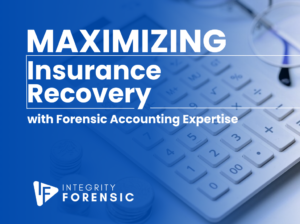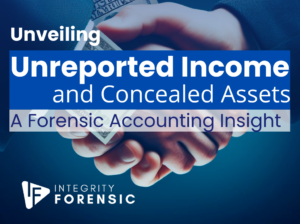As a professional advisor or attorney, you understand the importance of providing comprehensive services to your clients. When faced with complex financial issues, referring clients to a specialized forensic accounting firm can be a strategic move. Forensic accountants possess unique skills and expertise that can help unravel financial mysteries, detect fraud, and provide expert analysis. In this article, we will explore practical steps to effectively refer your clients to a forensic accounting firm, ensuring they receive the specialized assistance they need.
Recognize the Need for Forensic Accounting Services
The first step in effective client referral is identifying situations where forensic accounting services are necessary. Potential scenarios include financial fraud, embezzlement, divorce settlements, business valuations, asset tracing, and economic damages assessments. By recognizing the need for forensic accounting expertise, you can provide timely and relevant referrals to your clients, enhancing their chances of achieving favorable outcomes.
Establish Relationships with Reputable Forensic Accounting Firms
Building strong relationships with trusted forensic accounting firms is crucial. Conduct thorough research to identify reputable firms that specialize in the specific areas relevant to your clients’ needs. Seek firms with experienced forensic accountants who possess relevant certifications, such as Certified Fraud Examiners (CFE) or Certified Forensic Accountants (Cr.FA). Establishing a network of trusted professionals ensures that you can confidently refer your clients to experts who will deliver high-quality services.
Understand Client Needs and Goals
To make appropriate referrals, it is essential to understand your clients’ unique needs and goals. Schedule consultations to gather comprehensive information about their specific financial challenges. Understanding their objectives will enable you to match them with the most suitable forensic accounting firm, ensuring the expertise aligns with their particular requirements. Tailoring the referral to your clients’ needs enhances their satisfaction and strengthens their trust in your services.
Educate Clients about the Role of Forensic Accountants
Forensic accounting may be unfamiliar territory for many clients. Take the time to explain the role and benefits of forensic accountants in simple, jargon-free language. Highlight how forensic accountants investigate financial discrepancies, uncover fraud, provide expert testimony, and support litigation. By educating your clients about the value of forensic accounting services, you empower them to make informed decisions and fully appreciate the benefits of the referral.
Facilitate Introductions and Coordinate Communication
Once you have identified a suitable forensic accounting firm, facilitate an introduction between your client and the firm. Arrange a meeting or conference call to ensure a smooth transition. During this introduction, provide a thorough overview of the client’s situation and their specific expectations. Establish a clear line of communication between all parties involved to foster collaboration and streamline the process. Regularly follow up with both your client and the forensic accounting firm to monitor progress and address any concerns.
Maintain Confidentiality and Ethical Standards
Maintaining client confidentiality is paramount throughout the referral process. Emphasize the importance of confidentiality to the forensic accounting firm and ensure that they adhere to ethical standards and professional codes of conduct. Reinforce your commitment to protecting your client’s privacy, and work closely with the forensic accounting firm to ensure that sensitive information remains secure and confidential.
Monitor Progress and Provide Ongoing Support
Even after the referral, continue to provide support to your client. Monitor the progress of the forensic accounting engagement and inquire about their satisfaction with the services provided. Address any concerns promptly and advocate for your client’s best interests. By demonstrating ongoing support and commitment, you solidify your relationship with the client and enhance their overall experience.
In conclusion, effectively referring clients to a forensic accounting firm can significantly enhance the services you provide and strengthen your client relationships. By recognizing the need for specialized expertise, establishing relationships with reputable firms, understanding your clients’ needs, educating them about forensic accounting, facilitating introductions, and maintaining confidentiality, you can ensure a seamless referral process. By following these steps, you empower your clients to access the specialized knowledge and skills of forensic accountants, ultimately increasing their chances of resolving complex financial matters successfully.
When you require assistance, our experienced team at Integrity Forensic is ready to support you. Take advantage of our free consultation by calling 855-673-9999 today, or alternatively, you can reach out to us via email at questions@integrityforensic.com. We are here to provide the expertise you need and guide you through any forensic accounting needs you may face.
Sources:
[1] Journal of Accountancy: “Forensic accounting services: Expanding advisory opportunities” by Laura B. Fennig, CPA, and D. Larry Crumbley, CPA, Cr.FA.
[2] Association of Certified Fraud Examiners: Official Website.





